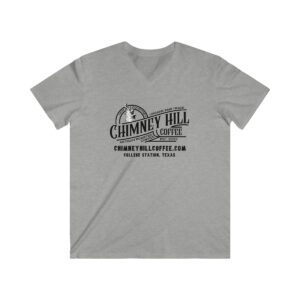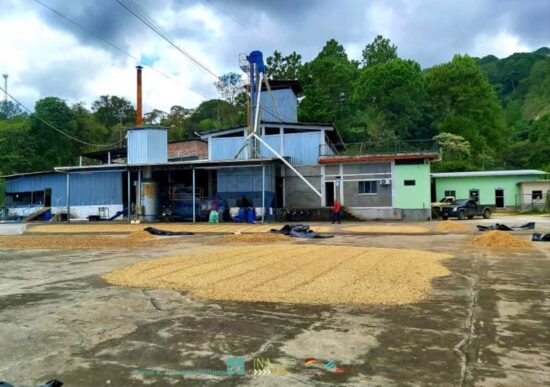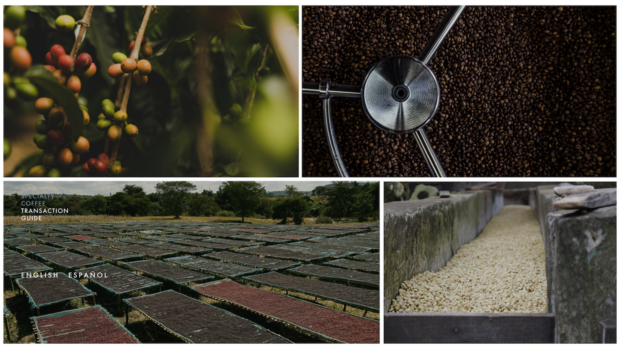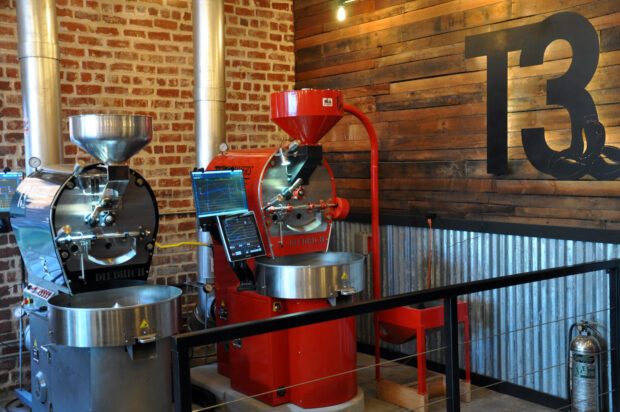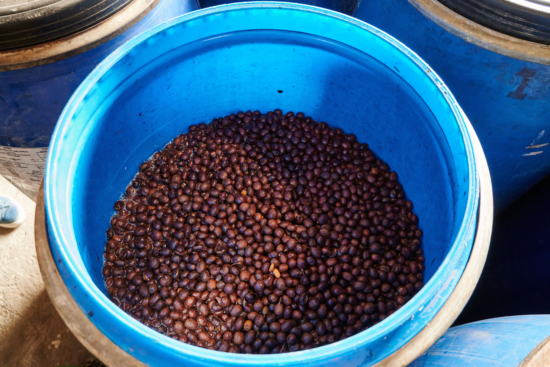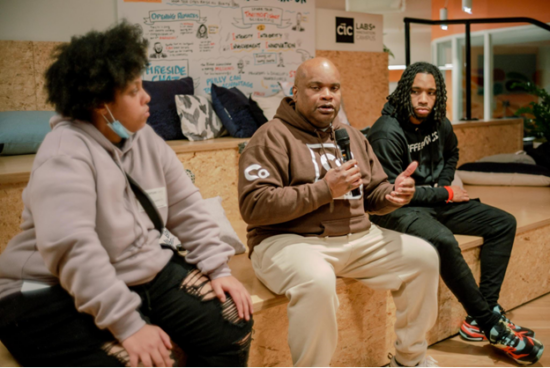This is the absolute fastest way to make French press iced coffee. Just forget about cold brew concentrate – with this Quick French Press Iced Coffee Recipe you can have your iced coffee ready in 5 – 6 minutes. Who doesn’t like the French press?! It’s...
Ethos Agriculture’s Journey from Vision to Impact in Coffee Sustainability: Part Two
Ethos Agriculture’s Journey from Vision to Impact in Coffee Sustainability: Part Two
Ethos Agriculture’s Journey from Vision to Impact in Coffee Sustainability: Part Two
Ethos Agriculture’s Journey from Vision to Impact in Coffee Sustainability: Part Two
Ethos Agriculture’s Journey from Vision to Impact in Coffee Sustainability: Part Two
Ethos Agriculture’s Journey from Vision to Impact in Coffee Sustainability: Part Two
I Tested Keurig K Compact – Here’s Everything You Need To Know
The most affordable Keurig coffee maker is available exclusively at Walmart and comes at a sweet price of only $59.00. In this article, you’ll find out how good it really is, and also find additional information like how to clean it, or do you need a water...
Here’s How to Change Keurig 2.0 Water Filter Easily
Not sure how to change Keurig 2.0 water filter? Here are step-by-step instructions that will help you do it quickly and easily. Keurig water filter should be changed every 2 months or 60 tank refills. The water filter is located inside the water tank, on the valve at...
The coffee rose for assessing Anaerobic coffee
I just came across this really neat tool to assess anaerobic coffees. I haven't used it for cupping yet. I'm not sure I will like it either because the idea of lowering the score of the coffee just because it tastes has some thyme flavors. At the same time I...
Three US Coffee Championship Events Are Heading To Rancho Cucamonga
This article is from the coffee website Sprudge at http://sprudge.com. This is the RSS feed version. The 2024 US Barista Championship, Brewers Cup, and Cup Tasters will take place March 15-17 at Klatch Coffee Roasters in Rancho Cucamonga, California.
The Origin Story of Turtle Island Coffee in Vancouver, B.C.
A new Indigenous-owned coffee company based in Vancouver, British Columbia, called Turtle Island Coffee has launched with the goal of exposing more people to high quality specialty coffee and Indigenous...
Get Ready for The Barista League’s 2024 Season
The Barista League has announced 12 competitions across four continents. BY J. MARIE CARLANBARISTA MAGAZINE ONLINE Photos courtesy of The Barista League When The Barista…
Get Ready for The Barista League’s 2024 Season
The Barista League has announced 12 competitions across four continents. BY J. MARIE CARLANBARISTA MAGAZINE ONLINE Photos courtesy of The Barista League When The Barista…
Get Ready for The Barista League’s 2024 Season
The Barista League has announced 12 competitions across four continents. BY J. MARIE CARLANBARISTA MAGAZINE ONLINE Photos courtesy of The Barista League When The Barista League announces new events, it’s worth paying attention! This year, the schedule will be...
Weekly Coffee News: EUDR and Africa + More Celebrity Coffee
Welcome to DCN’s Weekly Coffee News. Keep up with all the latest coffee industry stories and career opportunities by subscribing to DCN’s newsletter. Tell our editors about your news here. Report: Small-Scale Farmers in...
Do Higher Coffee Prices Mean More Money For Farmers? A Story From Sumatra Shows It’s Complicated
This article is from the coffee website Sprudge at http://sprudge.com. This is the RSS feed version. Since coffee costs more now than ever, do those coffee prices impact the amount of money earned by coffee farmers?
Coffee News Recap, 2 Feb: Applications open for Australia’s Richest Barista 2024, De’Longhi reports 4.6% revenue increase after La Marzocco move & other stories
Every Friday, Perfect Daily Grind rounds up the top coffee industry news from the previous week. Here are this week’s coffee news stories. The word of the week is: expansion. Mon, 29 Jan AeroPress launches limited-edition Clear Pink brewer. The coffee brewer is made...
Watch The 8 Best Coffee Videos Vying For Sprudgie Awards
This article is from the coffee website Sprudge at http://sprudge.com. This is the RSS feed version. The best coffee videos from 2023 featuring Cafe Imports, Aramse, Nguyen Coffee Supply, Wildly, Mirror Coffee Roasters, Alto Stories, Quek Shio, and Cafe Retiro.
Robusta is great and has untapped potential
I live in the US and my typical choice of coffee is lightly roasted Ethiopian pour overs. I generally love acidity and fruit flavors in my coffee. My experience with Robusta has often been poor. Very dark, roasty and maybe chocolatey. I participated in the Hoffman...
Design Details: Brewing Reinvented at ULA Café in Melbourne
Welcome to Design Details, an ongoing editorial feature in Daily Coffee News focused on individual examples of coffee shop architecture, interior design, packaging design or branding. If you are a coffee...
Robert Downey Jr.’s New “Happy Coffee” Is Really Depressing
This article is from the coffee website Sprudge at http://sprudge.com. This is the RSS feed version. Robert Downey Jr. and Craig Dubitsky team up for Happy Coffee.
Out Now: The February + March 2024 Issue of Barista Magazine!
In our new issue we feature Lisa Lawson from Glasgow, Scotland, take a look at the newest grinders, explore spring drink inspiration, see how more women are getting involved in coffee tech, and much more! BY SARAH ALLENBARISTA MAGAZINE We’re stoked to announce the...
The coffee industry’s biggest competition: The story of the World Barista Championship
Every year, the global coffee industry gears up for one of its most exciting and groundbreaking competitions: the World Barista Championship. For more than two decades, the WBC has been one of the biggest catalysts for change and innovation in specialty coffee, and...
The 2023 Specialty Coffee Transaction Guide Has Landed
The 2023 edition of the Specialty Coffee Transaction Guide (SCTG) guide went live today, providing actors throughout the coffee chain a data-driven tool for green coffee price discovery. The full...
Espro great until I needed replacement filter ☹️
I've had an Espro P7 for nearly four years after seeing glowing praise on this sub (to which I later contributed). Before I bought the P7 I looked at the replacement parts available and they seemed like a solid company in that they sold e.g. replacement filters...
New Bill Requires More Kona In Your Kona Coffee
This article is from the coffee website Sprudge at http://sprudge.com. This is the RSS feed version. Currently a coffee only need to be 10% Kona to be labeled as such.
What’s the best and worst part about owning and running a coffee shop?
I'm not interested in getting into it myself, as I have no experience in the service industry, no real appetite for risk and no desire to run a business in general. But sometimes I think about it and I wonder what's the most enjoyable thing about it and...
minimum dose size?
I use the Hario switch to brew my coffee and am trying to reduce my caffeine consumption. Hence I would like to brew smaller cups of coffee. I am currently using 10g of coffee with 160g of water. (1:16 Ratio) I am wondering if there is a minimum amount of coffee...
[CAFE OWNERS] Background before starting a shop?
I’ve worked in coffee for 6 yrs as a barista and shift supervisor and have passion for it. I’ve decided that I want to open my own place in the future and so I’ve been doing the research to make a business plan. Lately, however, I’ve begun to realize just how many...
Ethos Agriculture’s Journey from Vision to Impact in Coffee Sustainability: Part Two
In the second half of this article, we discover how the Coffee Barometer attempts to bridge the gap between discourse and action, envisioning a sustainable future for the coffee sector.
BY VASILEIA FANARIOTI
SENIOR ONLINE CORRESPONDENT
Featured photo courtesy of Rodrigo Flores via Unsplash
As we embark on the second part of our conversation with Ethos Agriculture team members, Frederik de Vries and Sjoerd Panhuysen (check out part one here), our focus turns to the heart of the matter—the 2023 Coffee Barometer. The Coffee Barometer, initiated in 2006, emerged as a response to the need for transparency in companies’ promises of sustainable coffee procurement, and has evolved over time.
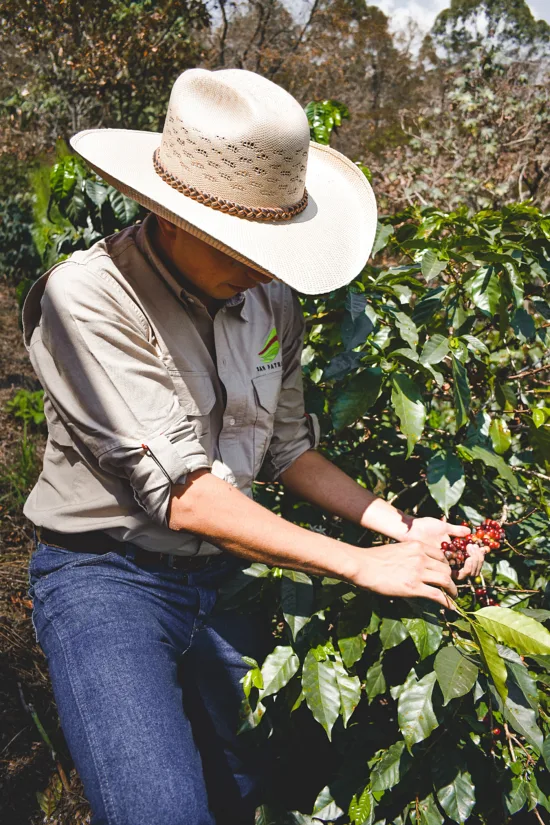

Navigating Industry Challenges
The latest Coffee Barometer emphasizes the multifaceted challenges confronting the industry. A major issue lies in the concentration of production, where 85% of the market is dominated by a select group of countries, and the top 11 roasting companies account for 35% of annual green-coffee roasting. Additionally, many coffee farmers struggle to generate sufficient income, hindering their ability to achieve a living wage.
The urgency of adapting coffee production to climate change is impeded by financial constraints exacerbated by income challenges. Furthermore, there’s a notable shift in the discourse around sustainability, transitioning from voluntary initiatives to mandatory regulations, exemplified by the recent EU Deforestation Regulation. Ethos Agriculture sees its role as a bridge, addressing these challenges through research, benchmarking, and further exploration of the issues.
The report also brings to light collaboration challenges within the sector. Ethos Agriculture notes a lack of critical civil society organizations holding companies accountable. ”The trend of NGOs collaborating with the private sector on sustainability programs sometimes limits their ability to be critical,” Sjoerd pointed out during our conversation. The Coffee Barometer report aims to fill this gap by providing an independent assessment; this will ensure that critical questions are asked, and companies are held accountable for their actions.
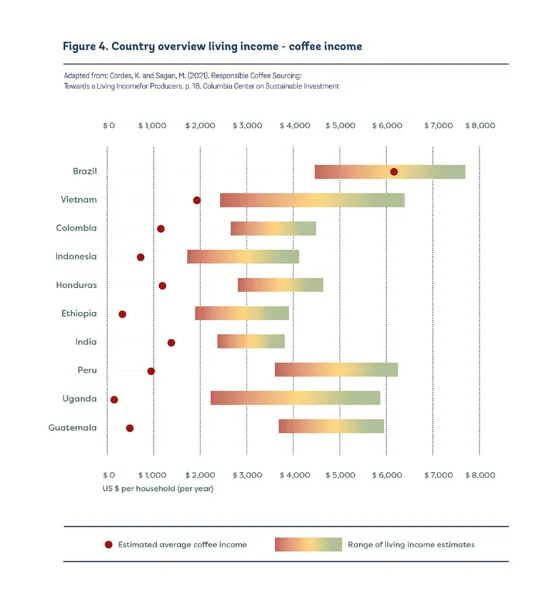

Bridging the Gap Between Discourse and Action
As we discussed these challenges during our conversation, transparency in the public sector became a focal point. Ethos Agriculture raised concerns about companies hesitating to incorporate the actual costs, including social and environmental costs, into the prices they are willing to pay for coffee. This reluctance is evident in the low procurement of certified coffee and a hesitancy to experiment with pricing aligned with living income benchmark studies.
”Despite the proliferation of benchmark studies, there’s a noticeable gap in companies taking tangible actions. The knowledge exists, but the crucial translation into actionable support for farmers remains elusive due to a lack of willingness among companies to turn insights into concrete financial commitments,” Frederik said.
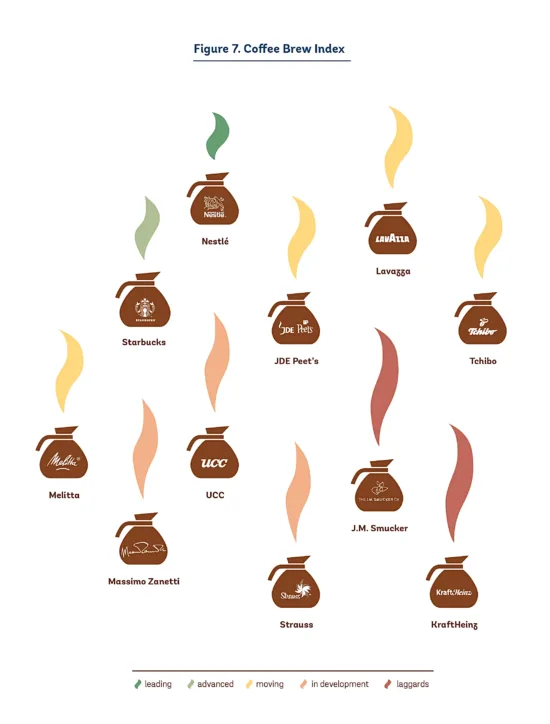

The interview also touched on climate change, regenerative agriculture, and agroforestry practices within the coffee sector. While the Ethos team acknowledged urgency and commitment from some companies, they mentioned there is a concern about the lack of clear policies and actions to address climate-related challenges within supply chains.
The Coffee Brew Index is another key aspect of the 2023 Coffee Barometer. The index emerged as a new tool to provide insights into which companies are implementing robust sustainability policies. Challenges in transparency were highlighted, particularly the lack of comprehensive reporting by companies on sustainability practices, premiums, and traceability to the farm level.
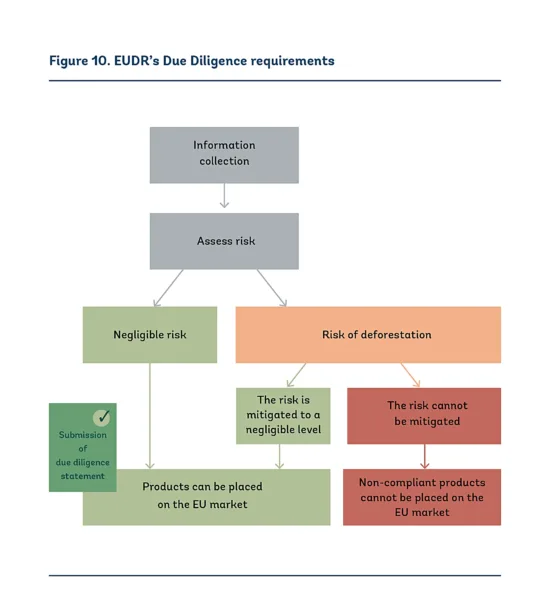

Reflections and Future Initiatives
The interview concluded with insights into Ethos Agriculture’s ongoing and upcoming initiatives. The Coffee Barometer, conducted every few years, was emphasized as crucial for recording discussions transparently. The challenges posed by the transition from voluntary commitments to mandatory frameworks were discussed. They said there was a lack of preparedness among major entities in the coffee industry for new legislation and regulations, such as the aforementioned EU Deforestation Regulation.
Frederik and Sjoerd shared details about their ongoing projects, which include collaboration with the US African Development Foundation to support coffee cooperatives in East Africa. The Coffee Brew Index also is set to have a second edition, potentially involving more companies and traders.
The 2023 Coffee Barometer report is available to download for free.
ABOUT THE AUTHOR
Vasileia Fanarioti (she/her) is a senior online correspondent for Barista Magazine and a freelance copywriter and editor with a primary focus on the coffee niche. She has also been a volunteer copywriter for the I’M NOT A BARISTA NPO, providing content to help educate people about baristas and their work. You can follow her adventures at thewanderingbean.net.
Subscribe and More!
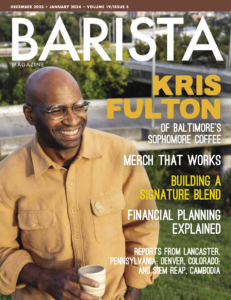

Out now: It’s the December 2023 + January 2024 issue! Read it for free with our digital edition. And for more than three years’ worth of issues, visit our digital edition archives here.
You can order a hard copy of the magazine through our online store here, or start a subscription for one year or two.
The post Ethos Agriculture’s Journey from Vision to Impact in Coffee Sustainability: Part Two appeared first on Barista Magazine Online.


